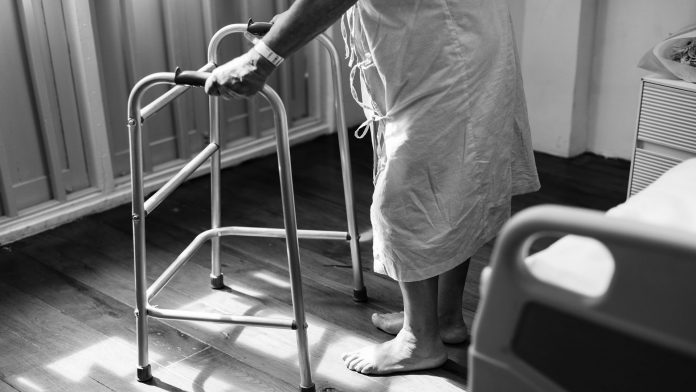|
Food is essential for survival. Most of us love to relish the food that we eat and choose to eat a variety of cuisines. The world around is always bothered about the health problems that crop up due to excess food consumption in terms of obesity and weight gain but not much attention is given to the problems that arise due to lack of consumption of proper quality food. Frailty syndrome exists as a growing concern in the elderly population developing as a result of the food that we eat or rather, the type of food that we don’t eat! Weakness is a part of ageing and every adult over the age of 60 starts experiencing weakness all over the body. But frailty is not a regular part of the ageing process and we need to learn to differentiate between normal ageing and frailty. Normally, a person is diagnosed with frailty syndrome if he/she is diagnosed with three or more of the following criteria that includes weight loss of more than 5% of body weight in the past 1 year, exhaustion, weakness (poor hand grip or extreme pain in joints), slowness and inactivity.
Frailty syndrome is usually present in adults over the age of 65 and these individuals need assistance to perform the daily activities such as brushing teeth or even going for a bath! Researchers don’t yet have a clarity over the development process of frailty but they do come up with certain factors such as sarcopenia and muscle mass loss as a contributing factor. Read more about sarcopenia and how proteins can contribute towards preventing muscle mass loss by visiting www.firsteatright.com. There are studies that show a clear link between frailty development and nutrition intake but certain factors such as protein, calorie, vitamin D and calcium intake too have a greater influence over frailty development. Several trials insist on the relationship between low protein intake and frailty development-a study of over 24,000 participants showed that those with the highest protein intake were at a least risk of frailty development. Studies also show that insufficient intake of vitamin D, vitamin E, vitamin C and vitamin B9 was a significant risk factor for frailty development. There are various studies that show vitamin D as an independent factor for frailty. While we can see from these studies that lack of certain nutrients increase the risk of frailty a latest study has shown that older people who eat a poor-quality diet are increasing their risk of frailty. A Well-balanced Diet is the Key to Abolish Frailty The US study on frailty employed 2,154 participants who were all aged between 70 and 81 for a four-year study period. All of these participants were either termed as ‘robust’ as they were devoid of any cognitive or physical frailty problems or termed as ‘pre-frail’ as they had only one or two symptoms of frailty. Totally 277 participants became frail. Of the 1,020 participants who started out as robust candidates 629 of them became frail or developed pre-frailty. The researchers clearly confirmed from the research that those individuals with a poor-quality diet were twice at an increased risk of succumbing to frailty while those with a medium-quality diet were associated with a 40% increased risk of frailty. It was also visible that proteins played a crucial role in frailty development as this nutrient is linked to loss of muscle mass and strength, two conditions that evidently happens with ageing. While total protein intake, animal protein intake and total calorie intake did not affect frailty risk lower vegetable protein intake was linked to a higher risk of robust people developing pre-frailty but the researchers could not conclude whether this could proceed into full frailty as time goes. Diet quality of participants were measured using a food frequency questionnaire. Hence, what you eat is extremely important to decide your course of life. Eat a diet that’s well-balanced, rich in nutrients such as fruits, vegetables and nuts, do regular physical activity and stay active to safeguard yourself from frailty. Comments are closed.
|
AVOID FRAUD. EAT SMART.+91 7846 800 800
AuthorDietitian & Nutritionist Dr. Nafeesa Imteyaz. Archives
July 2024
Categories
All
Dr. Nafeesa's Blog @blogspot |
- Home
- Written Testimonials
- Consult
- Clinics
- Blogs
-
Diet & Nutrition
- Diabetes Reversal
- IVF IUI not needed for PCOS PCOD Infertility
-
Medical Nutrition
>
-
Disease & Conditions
>
- Infertility | PCOS
- Diabetes Mellitus
- Cholesterol
- Hypothyroid
- Kidney Problems
- Hypertension
- Cardiovascular Diseases
- Liver Diseases
- Gastro intestinal disorder
- Cancer
- Metabolic Disorders
- Orthopedic Disorders
- Eating Disorders
- Dietary Recall
- Weight Record Filled By Clients
- Online Payment Transaction Details
- Online Clients Weight Check Form
- Our Program Package Service Charges
- Weight Record 2017 Clients
- Measurements sent by Clients
- Terms & Conditions Of Payment
- Thanks. Your Form is Submitted
- Video Testimonials
- Lifestyle & Wellness
- Lifestyle & Wellness Blog
- Allergy & Intolerance
- Weight Loss / Gain
- Weight Loss / Slimming Blog
-
Disease & Conditions
>
- Life Cycle Nutrition >
- Sports Nutrition >
- Integrity in Nutrition
- Knowledge Centre
© COPYRIGHT 2022. ALL RIGHTS RESERVED. FRST HEALTHCARE PVT LTD.
Dr. Nafeesa Imteyaz of First Eat Right clinic, is the Best Dietitian Nutritionist in Bangalore. Best Dietitian Nutritionist in Pune. Best Dietitian Nutritionist in Hyderabad. Best Dietitian Nutritionist in Chennai. Best Dietitian Nutritionist in Mumbai. Best Dietitian Nutritionist in Delhi. Best Dietitian Nutritionist in Kolkata.


